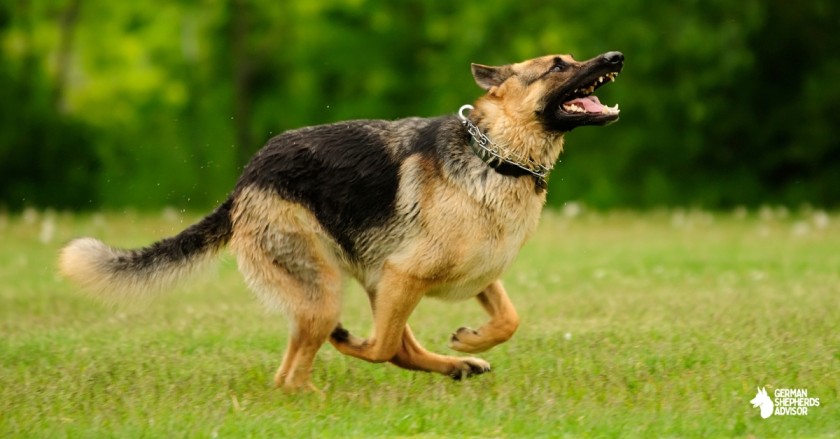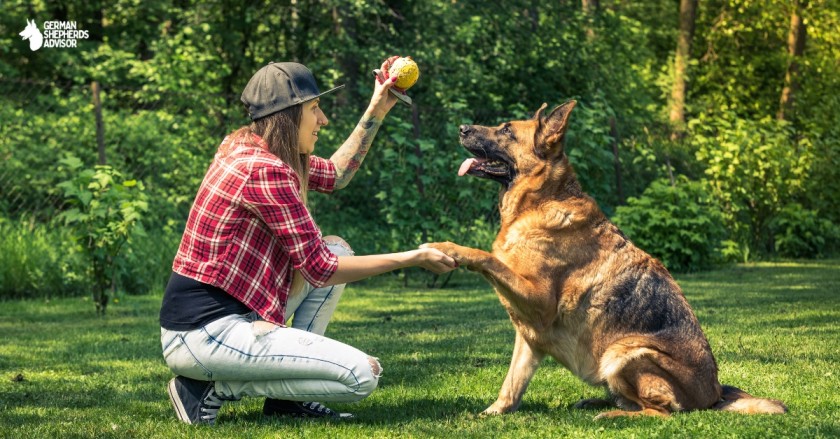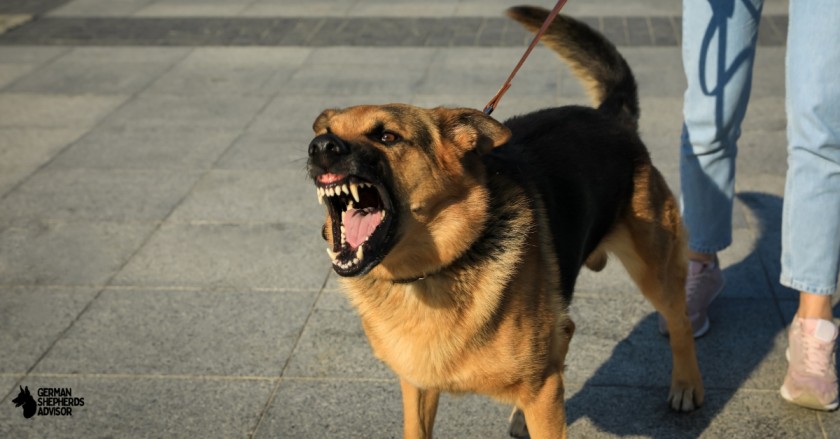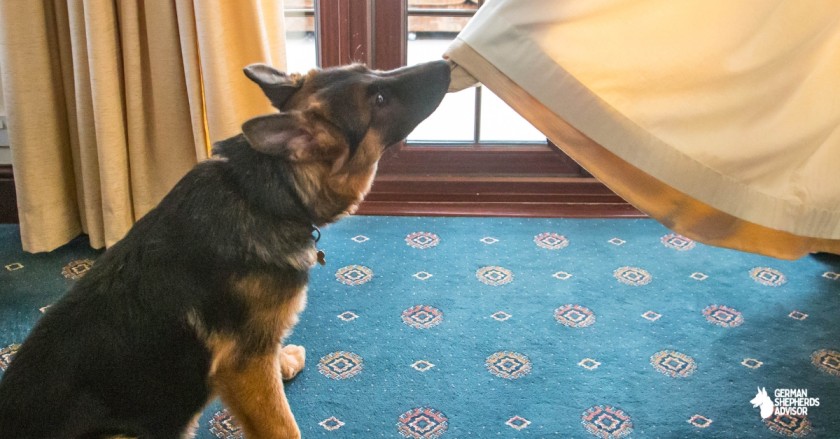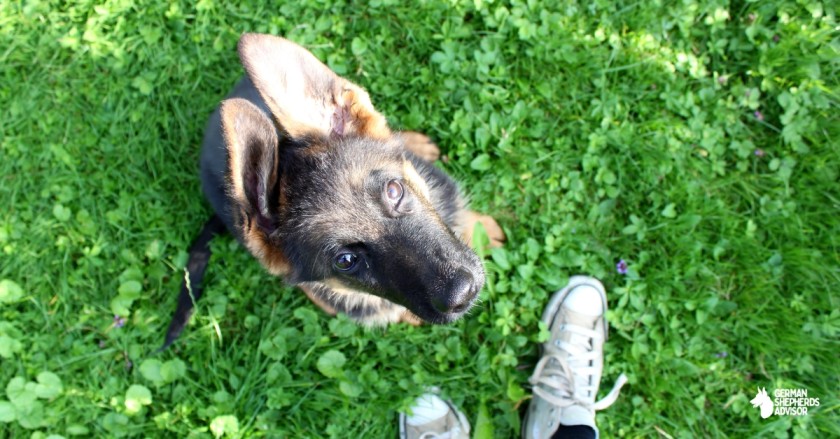German shepherds are a high-energy breed that does not tire easily. They tend to be very watchful and protective of their family, barking at anything new or unusual they encounter. Their unique coat is weatherproof and sheds only twice a year. While they require regular grooming, this breed also has a fairly long lifespan of ten to twelve years on average as compared to some other breeds such as dachshunds that live an average of 9-to-13 years or so.
They have been known to respond by biting when they feel threatened enough. Owners should never leave original equipment such as muzzles, collars, leashes etc with them unattended or out of sight because they may chew on them. When your German shepherd is look like a hyper dogs, giving them what they want, such as attention or food, to calm them down encourages bad behavior.
Regular puppy socialization with other pups, adult dogs, and humans and animals is a terrific method to calm your puppy. You might also try providing it with toys or calming chews or bones as additional distractions. The majority of German shepherd puppies will outgrow their energetic behavior.
However, adult German Shepherds will still have a lot of energy, which you’ll need to learn to direct towards more relaxing activities. For years, many new potential German shepherd owners have been asking this most common question.
They are commonly known as Companion, Therapy, and Assistance Dogs due to their unique aptitudes. We will discuss all quick ways to calm down the German shepherd quickly.
Why is My German shepherd So Hyper Behaviour at Night?
Your days and nights look very similar if you have a hyperactive dog. Your Shepherd wants to play or run around when they should be napping. A German Shepherd’s puppy may act hyper if he/she is not properly trained to obey commands. This is because they don’t understand human behavior unless you train and socialize them well. If you are uncertain about what to feed and what not to feed your German shepherd puppy, consult your vet Doc.
This behavior can be a bit of a problem for some owners, especially when it is in the middle of the night and you’re tired, but it’s important not to punish them for being active during their normal waking hours. Instead, you need to teach your pup what time they should rest, so that they calm down when they should be resting and quieting their mind.
As much as you love your German shepherd puppy, all the hyperactivity and destruction can be overwhelming. Many German Shepherd puppy owners have successfully fed their dogs a stuffed Kong in their crates or bed when they have a lot of energy, which encourages calmness and helps them tire while resting.
Why do German Shepherds sleep so much?
Because one of their biggest predators — wolves — live in packs and need members who can keep a “sharp lookout for danger” even when the pack is at rest. So, to avoid being lunch, these animals learned how to stay awake during their waking times and sleep while they’re active.
This is where your GSD gets this behavior from (and what you should be trying to mimic), though it’s important that you teach them that inside the home, it’s actually time to sleep when humans are sleeping. Consider crate training your German Shepherd if other methods aren’t working well enough for you.
For those who don’t have enough free time or resources for such high-maintenance breeds, plenty of other low-energy dogs can still serve as excellent companions!
How Long Should A German Shepherd Nap?

Just like with people, every dog is different. You’ll need to determine what works best for yours by paying close attention to signs of fatigue throughout the day and night (droopy eyes, yawning, reduced activity level). Of course, sleeping through the day is ideal if you wish to keep your dog calm and quiet during normal waking hours. You can usually train them to sleep anywhere from 8 to 10 hours a day (at least), depending on how well you follow these tips.
But remember that if your Shepherd doesn’t get enough “sleep” during the day, they may experience what’s called reverse cycling, which is when your pup gets tired later in the night than usual (sometimes as late as 3 am!). If this happens often (and you suspect it might be because he didn’t nap enough earlier), try limiting their play sessions before bedtime or even giving them calming treats half an hour before bed to help ease any anxiety they might be feeling.
What if my dog naps too often? While I’m all for teaching your pup to sleep as much as possible each day, there is such a thing as oversleeping — and it can actually be dangerous. Dogs who sleep more than 12 hours a day may experience serious health problems like obesity, joint issues, and more.
These dogs are also at an increased risk of developing heart conditions that can result in death, so play it safe by limiting their nap time to just 10 or 11 hours. If they’re still playing and acting overly energetic during normal waking hours (which is what you should want), this isn’t likely the issue — but you should take your pooch to see a vet nonetheless.
GSDs Need A Lot Of Sleep If you’re new to dog ownership, then you might not realize that German Shepherds need a lot of sleep. In fact, if your Shepherd isn’t sleeping as long as they should be or is sleeping more than usual , then their health could be at risk.
So keep an eye on how much your pup sleeps each day and look for signs that they’re actually tired (like droopy eyes ). And remember, the earlier you start teaching them what time it’s okay to nap and play, the better!
How do I make my German shepherd less hyper?
German Shepherds are high-energy, high-maintenance dogs who need a lot of exercise and stimulation. The breed is known for being hard to control in public because they will “go after” other animals or people without hesitation if not properly trained and socialized as puppies. They can be great guard dogs because of their watchful natures and strong protective instincts, but they may be too much dog for first-time owners to handle. Regular dog training is important, and your German Shepherd’s behavior and temperament should improve with the correct amount of physical and mental health. If your German Shepherd appears unusually lively, consider whether they receive enough physical and mental exercise.
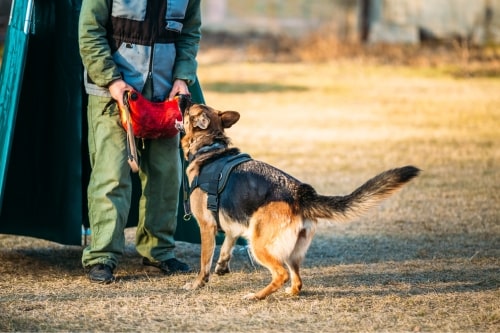
Their long coats require lots of brushing and combing, especially when shedding (usually twice a year). If you’re not willing or able to put in the necessary time, don’t get a German Shepherd Dog!
And beware: some unscrupulous breeders have known to recommend that young children not be around this breed as they’re growing up. In fact, the German Shepherd Dog Club of America does not allow anyone under age 16 to handle a puppy at their facilities unless under direct supervision.
One study found that more than half of German Shepherds have hip dysplasia, a common and serious hereditary condition where the thighbone doesn’t fit snugly into the hip joint. It can cause crippling lameness and painful arthritis that may require surgery to repair.
If you want a dog who…
A hardy, rugged working dog from Germany with great stamina, focus, and intensity – plus a thick coat that makes him look imposing enough that he might actually be able to protect your home! A high-energy dog who will zigzag after kids and animals with reckless abandon, and challenge you to keep up
Here are the German Shepherd’s traits:
A high-energy dog who needs a lot of exercise and mental stimulation. Easily bored, so training can be challenging. The breed is known as an intelligent troublemaker. May try to herd children or other pets. Requires extensive daily grooming to prevent mats from forming in their thick coats. A long-lived (13+ years) medium-sized dog with athletic endurance that makes them prone to health problems such as obesity and hip dysplasia if not properly for.
Demanding owners who will require enough exercise to maintain their dog’s peak mental and physical health. German shepherd dogs are not a good choice for first-time dog owners.
A breed suited best to experienced dog owners willing to invest time in exercising and training their energetic pets. Also not a good choice for those with limited space or who can only take short walks; this is a moderate energy dog requiring regular opportunities for sustained exercise.
FAQs
A German Shepherd Dog won’t be happy cooped up in an apartment all day while his people are at work or school. This breed needs plenty of opportunity for exercise and mental stimulation, and lots of human companionship. Will behave differently (often destructively) when left alone and not given sufficient attention. May become hyperactive if bored or lonely; prone to separation anxiety when owners aren’t around. Lots of barking, howling, whining, and other vocalizations that could annoy neighbors! Tendency to jump or lean on people passing by your home. Barking may pose a nuisance to close neighbors. Probably not a good choice for homes with young children. No guarantee of stability and friendliness around small kids, who could accidentally harm a dog this large.
The breed is known to be aggressive toward other dogs, especially from behind fences. It may try to herd people or other animals in the household. One study found that more than half of German Shepherds have hip dysplasia, a common and serious hereditary condition where the thighbone doesn’t fit snugly into the hip joint.

